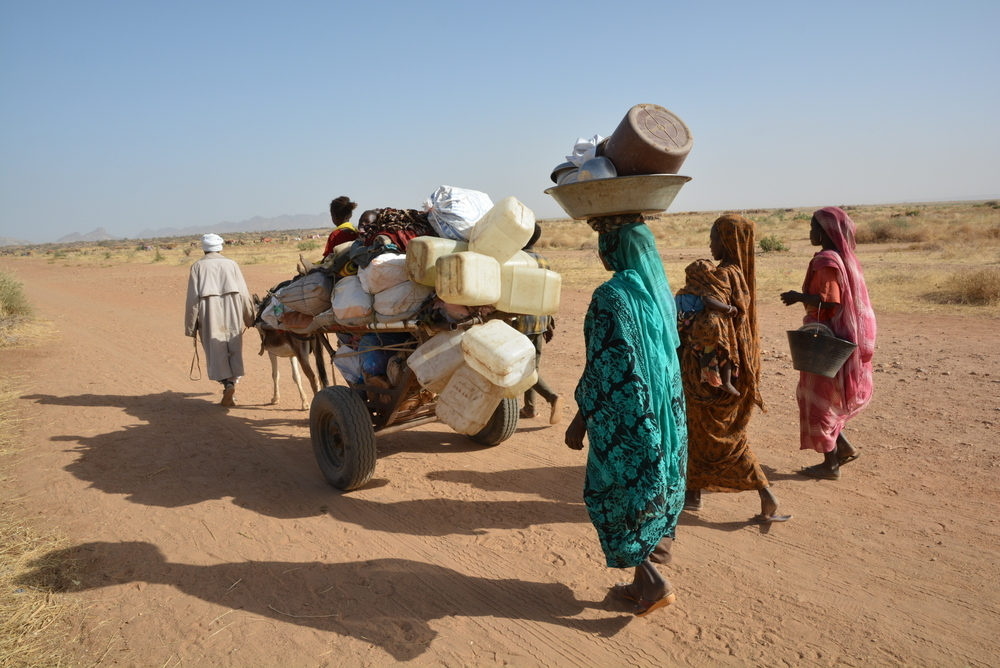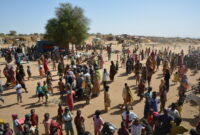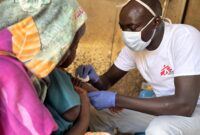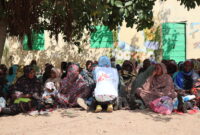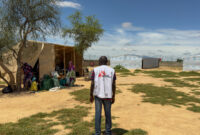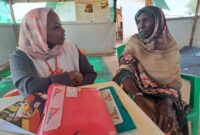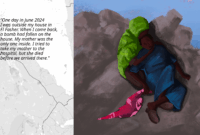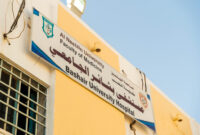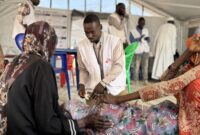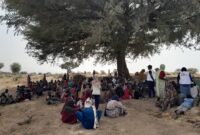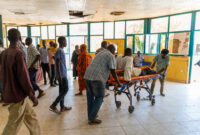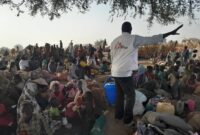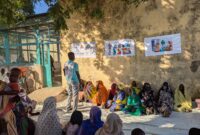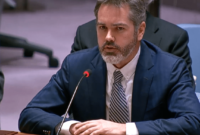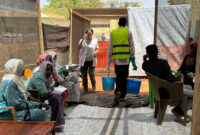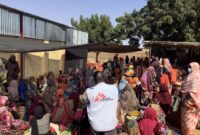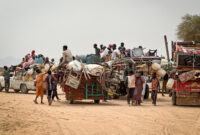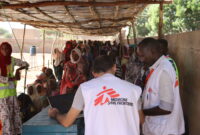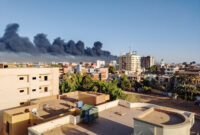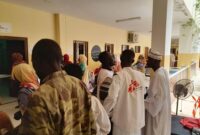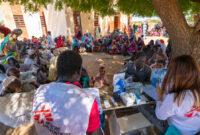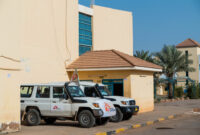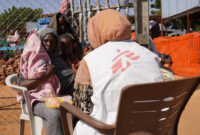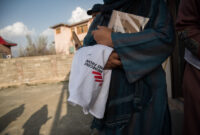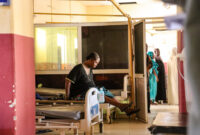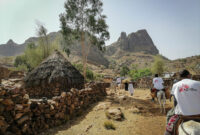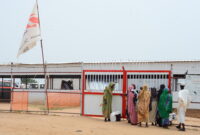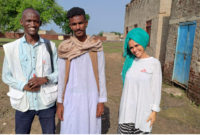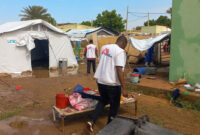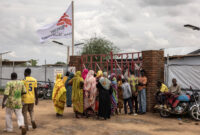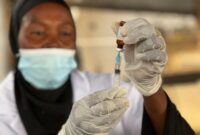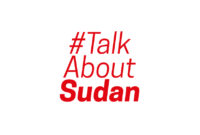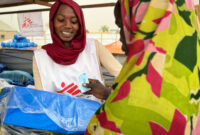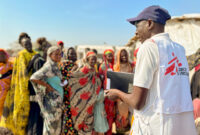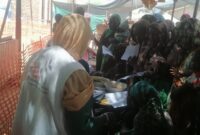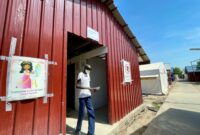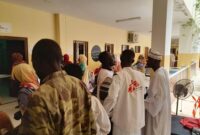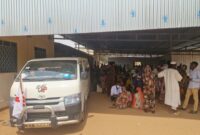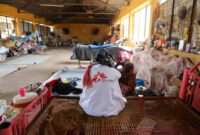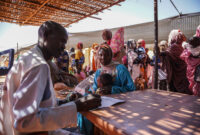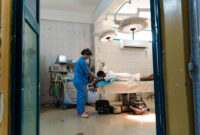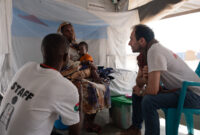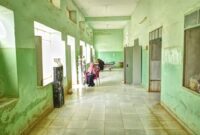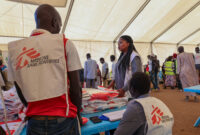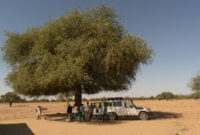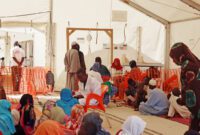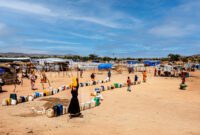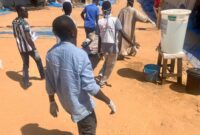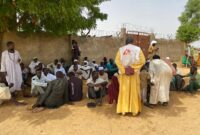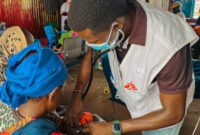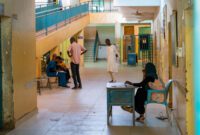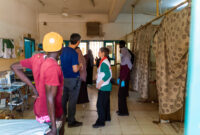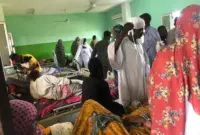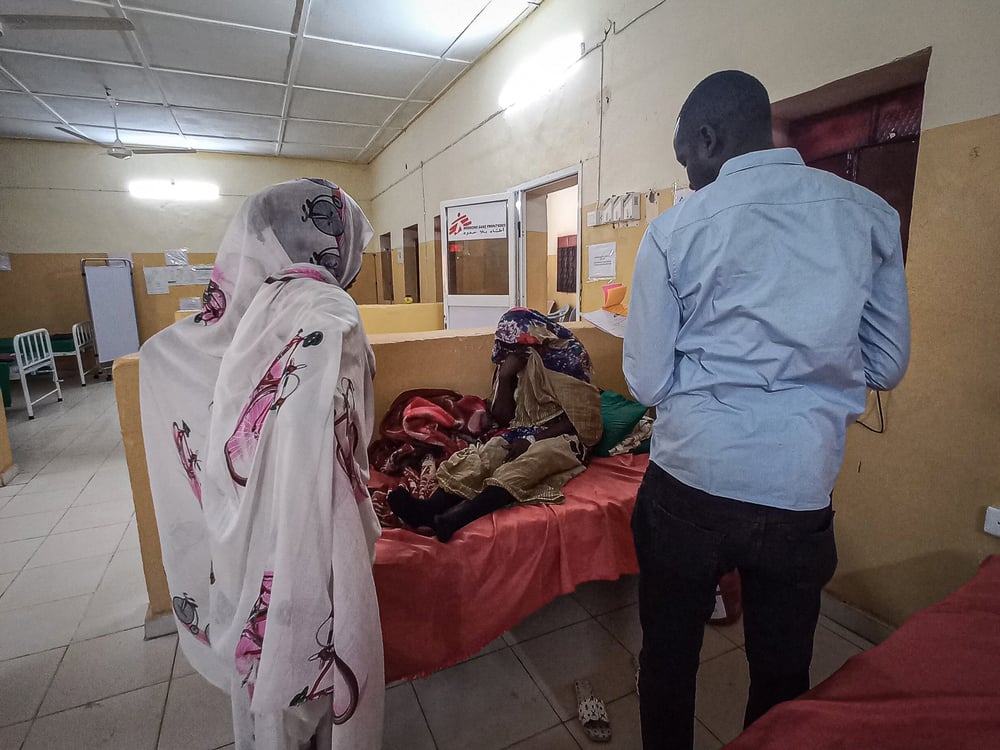“How long and how bad does it have to be for a meaningful response?”
MSF doctor Reza Eshaghian shares his firsthand account of Sudan’s humanitarian crisis.
I’ve just returned home to Canada after several months working with Doctors Without Borders/Médecins Sans Frontières (MSF) in Sudan, a country facing one of the most urgent and underreported humanitarian crises in the world right now.
Since the start of the war in April 2023, the UN estimates that more than 13 million people have been forced from their homes, many of them multiple times. Families have lost loved ones. Health systems have collapsed. The World Food Programme reports that a staggering 24.6 million people, equivalent to half of Sudan’s population, are facing acute food insecurity. Among them, more than 8 million are already at emergency levels of hunger.
The sheer scope of human suffering is overwhelming.
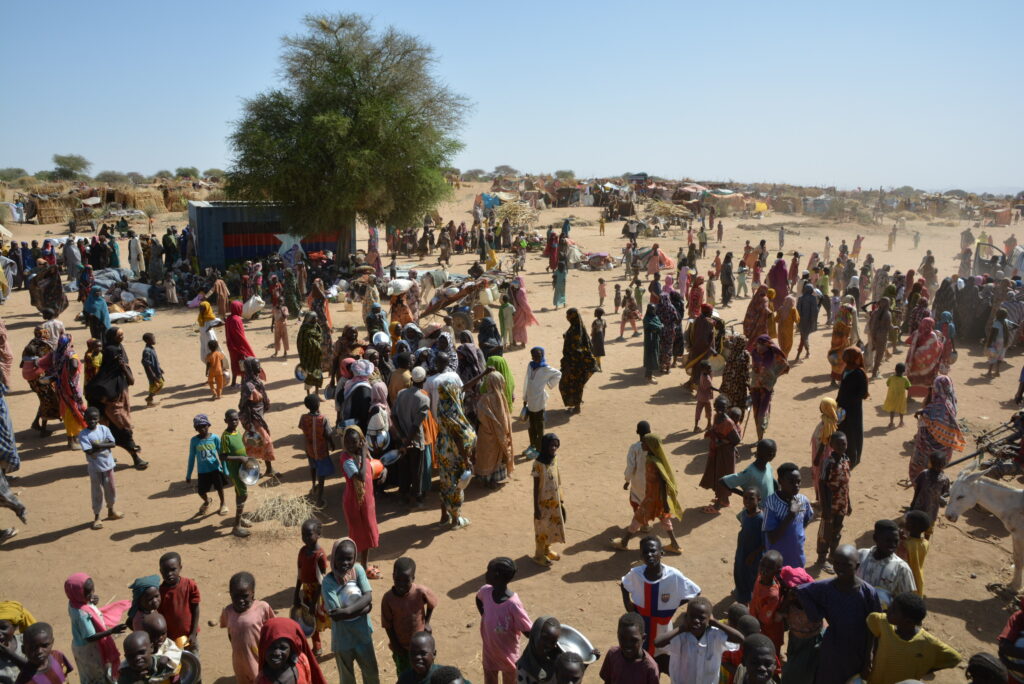
In Nyala and Kas, where I worked, our teams are doing what we can: supporting hospitals, treating malnutrition, caring for survivors of violence and vaccinating children. But the scale of needs far exceeds the resources available. Every day I spent in Sudan, I was confronted by the sheer inadequacy of what humanitarian care alone can achieve here.
As I write this, famine looms and sexual violence is widespread. While I was in South Darfur, Zamzam camp in North Darfur was brutally attacked by the Rapid Support Forces and aid workers were beaten and killed. Following these attacks in April, our team in Tawila, 60 kilometres away, witnessed the arrival of 25,000 people in just 72 hours – mostly women and children, most of them in an advanced state of dehydration and exhaustion. MSF teams reported that children were literally dying of thirst on their journey and that many sick and injured people had been left behind. “The stories… they’re terrible,” a colleague broke down in tears after a long day working in Tawila, overwhelmed by the scale of suffering.
As humanitarian workers, we can patch wounds, treat infections, and offer comfort, but we cannot end the violence that is breaking Sudan apart and continues to target fathers, mothers, sons, and daughters.
Today, the reality of life in Sudan is one where hundreds of thousands of people – already facing severe hunger – are being relentlessly driven from their homes, as civilians, aid workers and health facilities are deliberately and repeatedly attacked with impunity. Yet still, many of the world’s most powerful actors remain silent or absent.
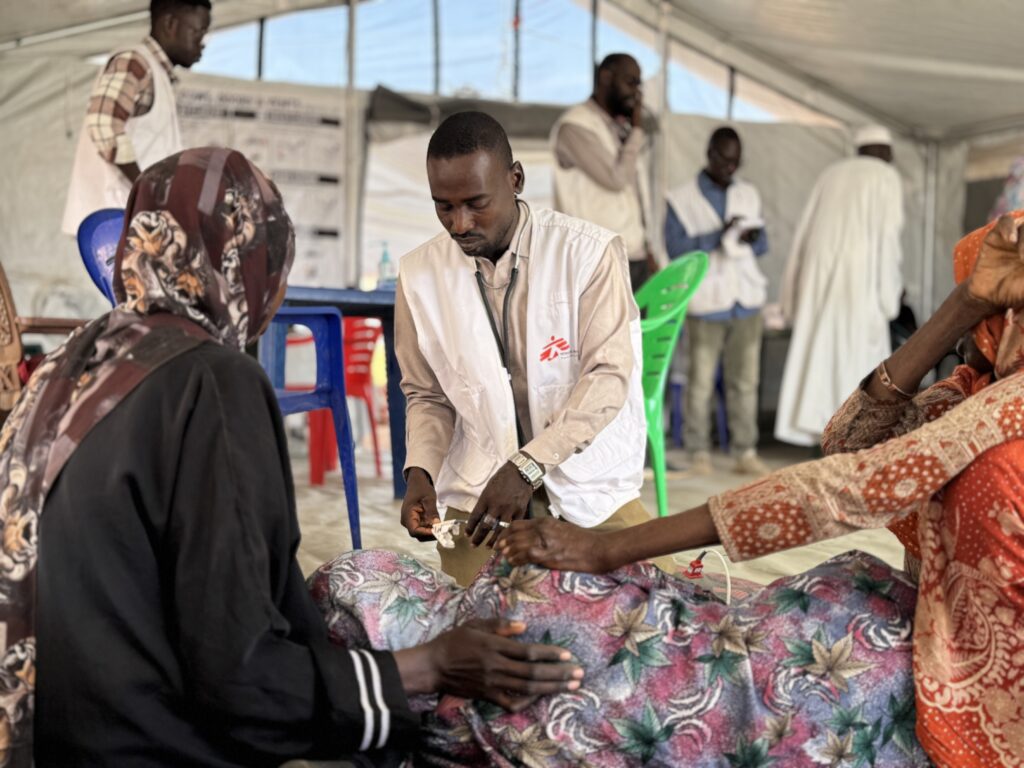
This failure to act is a choice, and it’s killing people.
I keep thinking of one woman who came to our hospital. She fled her home in Khartoum because of a wave of violence and ended up in Nyala, over 1,000 kilometres away. Her husband and two of her children were killed. She arrived at our hospital with her only surviving child, a three-year-old girl with a fever. We treated the infection and restored her daughter’s health.
But as a doctor, I can’t shake the feeling that the ability to respond with medical care for this one girl was overshadowed by everything we couldn’t and still can’t do. That mother’s loss is a microcosm of a much larger failure. As humanitarian workers, we can patch wounds, treat infections and offer comfort, but we cannot end the violence that is breaking Sudan apart and continues to target fathers, mothers, sons and daughters. We haven’t been able to get the warring parties to respect humanitarian law or grant us access to the people who need care the most. We can’t stop the war.
In South Darfur, MSF is virtually alone in leading and coordinating the humanitarian response. And yet, the Sudanese staff I worked alongside showed up every single day—facing the same violence, hunger and grief as their patients.
Sudan is now entering the third year of this ongoing brutal conflict; food insecurity is worsening, and many areas have reached famine levels. This growing human-made health crisis is being driven by relentless conflict, ongoing obstruction by warring parties and a failing humanitarian response.
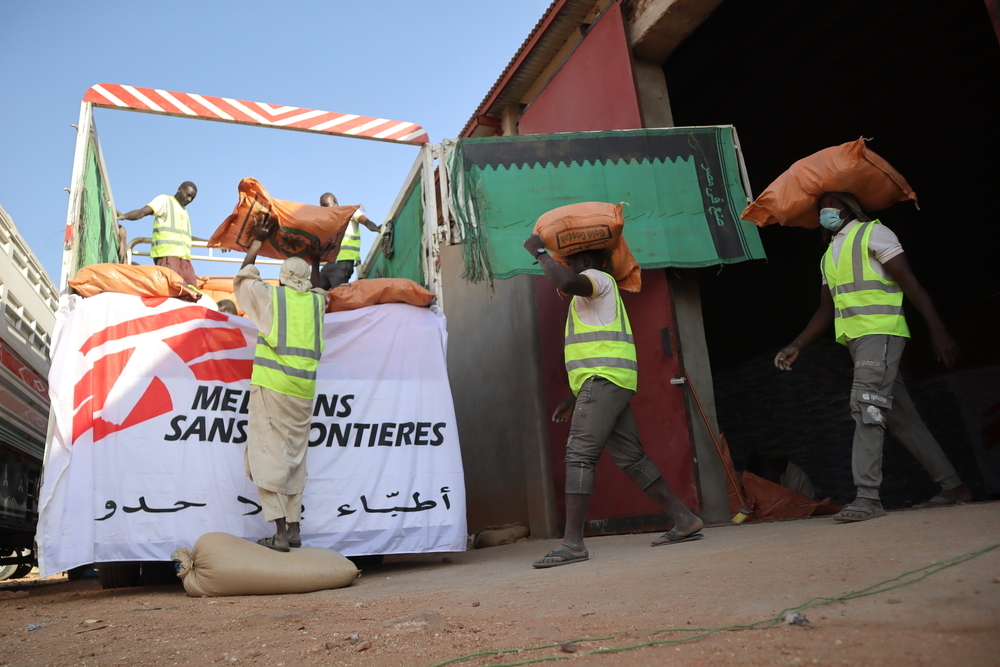
And so I ask: How long and how bad does it have to be for a meaningful response?
During the G7 summit in June, it was profoundly disappointing that Canada and other G7 countries failed to use their power to protect people caught in humanitarian emergencies like Sudan. It was heartbreaking to see the world’s most powerful democracies remain silent in the face of the world’s worst displacement crisis. Sudan was not even mentioned by name.
That silence is especially painful given what I’ve witnessed. Sudan is one of the most complex and underreported conflicts I’ve ever worked in. As a seasoned humanitarian, I’ve been in war zones before, but I’m used to seeing stronger UN coordination, more nongovernment organizations, more international presence. In South Darfur, MSF is virtually alone in leading and coordinating the humanitarian response. And yet, the Sudanese staff I worked alongside showed up every single day—facing the same violence, hunger and grief as their patients. They brought strength. They brought dignity. They reminded me why we do this work, and why global leaders must not look away.
The families I met in Sudan need more than medical care; they need safety, stability and a future.
Since getting home, I can’t stop thinking that politics and power continue to take precedence over human life and dignity, and nobody knows this better than the woman I met in Nyala with her three-year-old daughter.
I’m just another humanitarian worker returned from Sudan, sharing heartbreaking stories in an attempt to bring attention to one of the world’s worst humanitarian crises but it feels like the world has largely turned away.
This isn’t just about politics or policy; it’s about people. As a doctor, I can treat illnesses and offer comfort. But I know that’s not enough. The families I met in Sudan need more than medical care; they need safety, stability and a future. And that can only come if those in power choose to act and demand that this war’s atrocities not be met with indifference. The world must act now to restore safety and dignity to millions of people; our shared humanity demands it.
